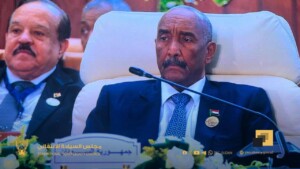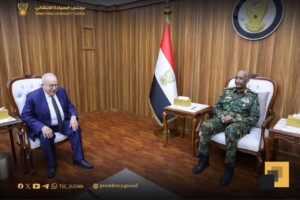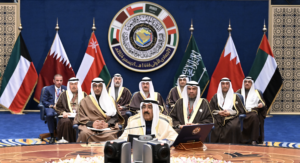Mbeki to meet Sudan Appeal forces on 7 August
The chairman of the AU High-level Implementation Panel (AUHIP), Thabo Mbeki, will meet with representatives of the Sudanese opposition on the 7th of August.
Mbeki agreed to meet the leaders of the opposition forces allied under the Sudan Appeal in a response to a letter of El Sadig El Mahdi, head of the National Umma Party (NUP).
El Mahdi told Sudan TV in a talk show on Saturday evening that the Sudan Appeal signatories agreed to sign the roadmap, proposed by the AUHIP in March this year for the peace negotiations between Khartoum and the allied opposition.
The NUP, the Sudan Revolutionary Front (SRF, an alliance of the main rebel movements), the National Consensus Forces (NCF, a coalition of opposition parties), and the Civil Society Initiative signed the Sudan Appeal, a two-page political communiqué calling for regime change and democracy, in Addis Ababa on 3 December 2014. Other Sudanese parties and civil society groups joined them in the following year.
Instead of signing the roadmap in March, the Sudan Appeal forces demanded the discussions on a ceasefire, the delivery of humanitarian relief to the affected population in conflict areas, basic freedoms, and the release of political prisoners to be addressed prior to their participation in Sudan’s National Dialogue. The representatives of the government signed the document.
Ibrahim Mahmoud Hamid, Assistant to the President of the Republic, and chairman of the governmental negotiation team, commented to the words of El Mahdi that “in the event the Sudan Appeal forces move one step toward the roadmap, the Sudanese government will move ten steps forward for the benefit of the nation”.
He said that the National Dialogue’s General Assembly will meet on 6 August to discuss the coming phase, and to determine the date of its General Conference.
On Sunday, the Communist Party of Sudan began its sixth conference at the Friendship Hall in Khartoum. The participants insisted on a regime-change, and urged the party leaders to adhere to their rejection of the National Dialogue and the “soft landing policy called for by world powers led by the USA to keep the current Sudanese regime in power”.
The chairman of the AU High-level Implementation Panel (AUHIP), Thabo Mbeki, will meet with representatives of the Sudanese opposition on the 7th of August.
Mbeki agreed to meet the leaders of the opposition forces allied under the Sudan Appeal in a response to a letter of El Sadig El Mahdi, head of the National Umma Party (NUP).
El Mahdi told Sudan TV in a talk show on Saturday evening that the Sudan Appeal signatories agreed to sign the roadmap, proposed by the AUHIP in March this year for the peace negotiations between Khartoum and the allied opposition.
The NUP, the Sudan Revolutionary Front (SRF, an alliance of the main rebel movements), the National Consensus Forces (NCF, a coalition of opposition parties), and the Civil Society Initiative signed the Sudan Appeal, a two-page political communiqué calling for regime change and democracy, in Addis Ababa on 3 December 2014. Other Sudanese parties and civil society groups joined them in the following year.
Instead of signing the roadmap in March, the Sudan Appeal forces demanded the discussions on a ceasefire, the delivery of humanitarian relief to the affected population in conflict areas, basic freedoms, and the release of political prisoners to be addressed prior to their participation in Sudan's National Dialogue. The representatives of the government signed the document.
Ibrahim Mahmoud Hamid, Assistant to the President of the Republic, and chairman of the governmental negotiation team, commented to the words of El Mahdi that “in the event the Sudan Appeal forces move one step toward the roadmap, the Sudanese government will move ten steps forward for the benefit of the nation”.
He said that the National Dialogue's General Assembly will meet on 6 August to discuss the coming phase, and to determine the date of its General Conference.
On Sunday, the Communist Party of Sudan began its sixth conference at the Friendship Hall in Khartoum. The participants insisted on a regime-change, and urged the party leaders to adhere to their rejection of the National Dialogue and the “soft landing policy called for by world powers led by the USA to keep the current Sudanese regime in power”.











 and then
and then